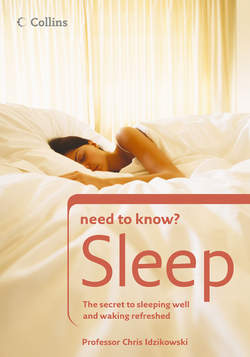Читать книгу Sleep: The secret to sleeping well and waking refreshed - Prof. Idzikowski Chris - Страница 10
Effects of sleep deprivation
ОглавлениеClassic sleep deprivation experiments consist of depriving subjects of one night’s sleep, then asking them to listen to about 1800 bleeps for an hour or so. About 40 of the bleeps are a second shorter than the others, and these are the ones the subjects have to react to. (Most errors of detection generally occur in the last 15 minutes of the task.) Experiments such as this have proved useful to scientists’ understanding of the consequences of lack of sleep. Findings have shown the main short-term effects to be as follows:
• General lack of wellbeing. Lack of sleep can cause fatigue and grogginess.
• Concentration and vigilance. Experiments have invariably shown damaging effects in these areas. People who have been sleep-deprived are more likely to have difficulty taking in information and to make mistakes at work. In real-life situations requiring constant vigilance, such as driving, the dangers are obvious. Statistics show that 20 per cent of all road accidents are caused by fatigue and that many of these accidents will lead to fatalities.
• Memory. Many people complain that they are more forgetful when they do not get enough sleep. This could be down to a concentration problem but it may also be that sleep deprivation makes it more difficult to retrieve information from the brain’s memory store.
